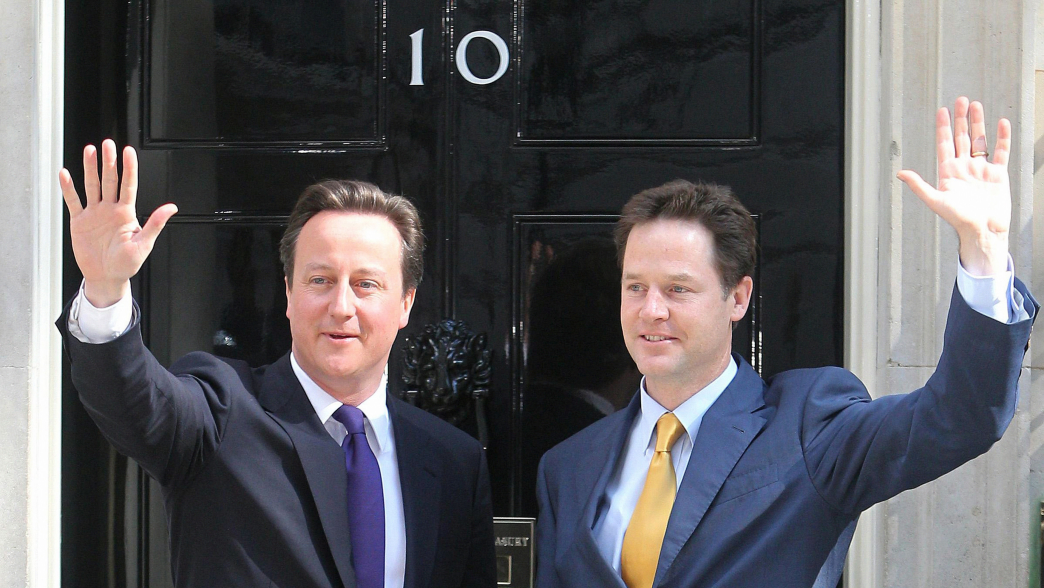Speculation about a hung parliament is focused on the wrong precedents
Recent experience shows the main parties should prepare to govern as a minority or an insecure majority.

A hung parliament would not necessarily mean Westminster is destined for another coalition, say Catherine Haddon and Hannah White. Recent experience shows the main parties should prepare to govern as a minority or an insecure majority.
With the local election results barely cold, speculation about the next general election is already ratcheting up. Keir Starmer, the Labour leader, has been pressed on whether he would make a deal with the Liberal Democrats if he found himself short of a majority. And Ed Davey, the Liberal Democrat leader, has been asked about his coalition intentions. But any bargaining between parties can only happen once the electoral arithmetic is clear; parties are only likely to set out their red lines in advance if they see an electoral benefit in doing so.
So far, speculation about a possible hung parliament has focused on the precedent of 2010 and the formation of the Conservative-Liberal Democrat coalition, 13 years ago today. But with a general election potentially a year and a half away, there are many different electoral scenarios that should be planned for, including majority victories for either main party or either claiming the right to govern as a minority.
A hung parliament does not mean coalition is the only option
Increasing discussion of a hung parliament has focused on possible pacts. In 2010 the coalition gave David Cameron and Nick Clegg a healthy majority, but the experience of the Liberal Democrats in the 2015 election means smaller parties are unlikely to want to repeat that experiment. And there are a wide range of ways to govern without a majority short of formal coalition. Supply and confidence – an explicit agreement from a smaller party to support the larger party in return for policy concessions – is one alternative, albeit one that still means the larger party agreeing to some of the demands of smaller parties.
Numbers matter. Being two seats short of a majority isn’t much different from being two seats over. Being 30 seats short of a majority could mean needing just one party’s support or possibly two. The UK is even less experienced than other countries when it comes to having multiple agreements in place, such as a coalition minority government or a coalition supported by further supply and confidence arrangements.
Minority government may be under-priced – and parties should consider how that would work
Pure minority government is hardly being discussed as a possible outcome – but would be perfectly valid. Prime ministers are asked to form a government on the basis of their ‘likelihood’ to be able to command confidence, which can include having no formal agreements but instead bargaining on a case-by-case basis.
As the Cabinet Manual makes clear, ‘Commanding the confidence of the House of Commons is not the same as having a majority or winning every vote’. Instead it is about avoiding anything that constitutes a vote of no confidence; confidence can be presumed until it is proved otherwise.
Here momentum and plausibility also matter. If both main parties have a sizeable seat share and could, in theory, operate as a minority government, then the Conservatives get the incumbency benefit of being able to test if they can command confidence first. But if this is an implausible approach then the ultimate test resides with Parliament. If a government cannot command confidence, Parliament can swiftly vote no confidence. If an alternative government can then be formed, the King would be expected to appoint them. If they can’t, a second election would follow.
The main problem for the UK when it comes to minority government is the way it is viewed. Westminster politics has a particularly adversarial tone: political battles are won or lost; negotiation is about overcoming other politicians. But minority government can be most successful when it is about building different coalitions of support on different issues. A minority government’s survival depends on the opposition not coalescing against it, and success depends on being able to form alliances.
Governing with a majority now requires a minority government mindset
Speculation about the balance of power between the parties after the next election is only likely to grow in the run-up to polling day. But the major lesson the parties should take on board from the last decade in British politics – with the wide variety of electoral outcomes we have seen – is that British politics has changed. Over the past decade Parliament has become a far more volatile place, with British political parties becoming less disciplined. The days of an 80-seat majority allowing a government to be certain it can deliver its manifesto promises may be behind us, as Boris Johnson found when attempting to pass legislation through Parliament. In truth, every administration since 2010 has been characterised by the sorts of uncertainties that many associate with minority government.
Rather than seeing a hung parliament as an aberration to be managed, parties need to plan to manage party indiscipline, as well as to promote inter-party cooperation. This means thinking about how to maintain support among the different wings of their parties, how to timetable their legislation plans with leeway built in for difficult negotiations, and how to have a more sophisticated whipping operation than some recent governments have managed. Operating with a minority mindset – whoever forms the next government, and however many seats they win – may well be the most effective way to govern
- Political party
- Conservative Labour Liberal Democrat
- Position
- Prime minister
- Administration
- Cameron-Clegg coalition government
- Legislature
- House of Commons
- Public figures
- David Cameron Nick Clegg Keir Starmer
- Publisher
- Institute for Government